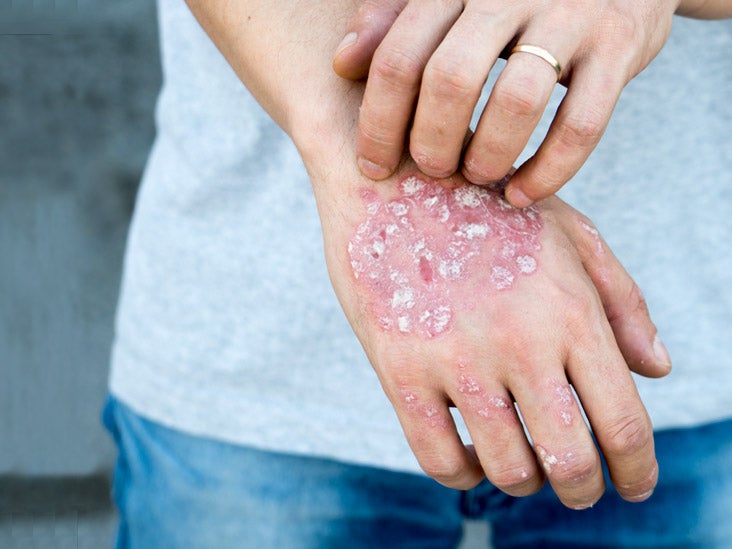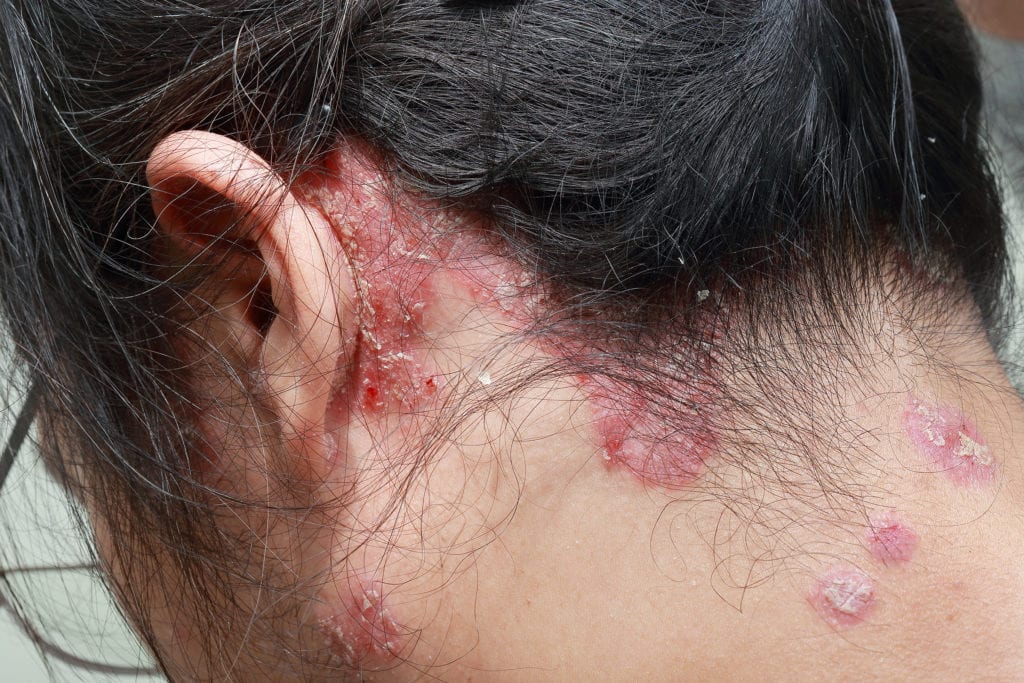
Psoriasis is a skin itching condition that accelerates the rapid growth of the skin cells. The rapid building up of cells causes scaling on the surface of the skin. Redness and inflammation around the scales is the common symptom of this disease. These are typically whitish-silver scales and develop red and thick patches. These patches can sometimes crack and ooze blood. You will find scale developments around joints such as knees and elbows. The patches of psoriasis can develop anywhere on the body, including the neck, face, hands, and feet. There are also types of psoriasis that develop on the mouth, nails, and around the genitals.
Types of psoriasis
There are various types of psoriasis that you get to see. These are a chronic disease that needs medical attention, and the specialists will help you know about the type fighting your psoriasis. There are the types mentioned below-
- Most people fight with psoriasis that is known as plaque psoriasis. In this, your skin will be covered with inflamed and red patches, and the skin covers with whitish silver scales.
- Another type of psoriasis is pustular psoriasis that is very common among adults. These cause pus-filled blisters, white and areas of inflamed and red skin.
- Guttate psoriasis is very common among children. These types of psoriasis cause small pink spots on your skin. The most common places are arms, torso, and legs.
- Inverse psoriasis causes bright patches of shiny, red, and inflamed skin. These can develop under armpits and breasts, in groins, and around the area of genitals.
- Erythrodermic psoriasis is the rare one and with severe effects. This type covers a large portion of the body immediately, and it can also be life-threatening.

Options for treatment
There is actually no cure for fighting your psoriasis, and a variety of treatments can usually aggravate the symptoms. Yet, there are specialists who can formulate multi-faceted treatment based on the severity, variety, and longevity of the condition. These treatments include ointment shampoos, topical lotions, and ultraviolet light therapy. The medication also includes system-wide medications, which include biological aiming to control T cell production. The patients are also encouraged to play active roles in managing the disease and immediate appointment with the skin specialists. The immediate action can help to reduce the effects of psoriasis on your overall quality of life.
The important thing about the disease
There are a few points that everyone needs to know about psoriasis disease. While millions are getting affected by this disease, much little is known about it. Things that you need to know are as follows-
- This disease is not contagious, you can live in close contact with a person suffering from the disease, but you will not have it. The disease passes down through the genes.
- Psoriasis may resemble a rash, but it is not so. Psoriasis is actually an autoimmune disease, which means that the body can not differentiate between healthy cells and foreign bodies.
- There is no cure for psoriasis as it is an autoimmune disease, and a flare-up of psoriasis can come and go without any warning and avoid using psoriasis-prone skin product. It can happen on any part of the body and is very much unpredictable. The most probable areas of the disease are the knees, scalp, hands, elbows, and feet.
- If you stay under stress, then there are chances that your psoriasis will flare-up. Other things that can trigger it are infections, skin injuries, too much exposure to sunlight, alcohol intake, and smoking.
- Psoriasis can get worse in winter as cold weather dries the skin and triggers inflammation. You can get some exposure to sunlight during winter to avoid a flare-up.
- The severity of the psoriasis disease varies from person to person, and most people have a mild form of psoriasis. Severe psoriasis covers more than 5 percent of the surface of the body.
- This disease generally affects from 15 to 35 years of age, and it can affect women and men equally. It is normally seen to develop in adult years.

Immune system
The condition of psoriasis is autoimmune, and this means that the body is attacking itself. In this case, the white blood cells, also known as T cells by mistake, attacks the skin cells. The sped-up cell production of skin cells causes new cells to develop very quickly. They push the cells to the surface of the skin, where they pile up. You must not use psoriasis-prone skin product as it can flare-up the condition.
Diagnosing psoriasis
There are various products through which to diagnosis psoriasis. A simple physical examination can help the specialist to diagnose the disease. If the symptoms are not clear, then the specialist can also perform a biopsy to confirm the suspected diagnosis. A small portion of the skin is extracted and is sent to the lab for examination. In normal physical examinations, be sure to show all the concerned areas to the doctor for a better diagnosis.






More Stories
Unveiling Trenbolone Acetate: A Comprehensive Guide to Its Impact on Bodybuilding
Secure Your Ideas with Safenote
Pokemon Extravaganza: Shows Across North Carolina